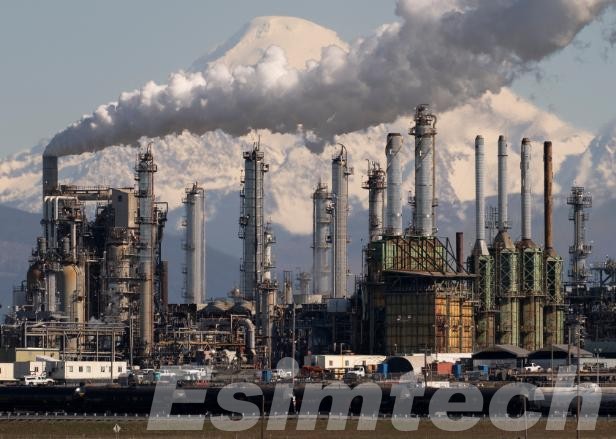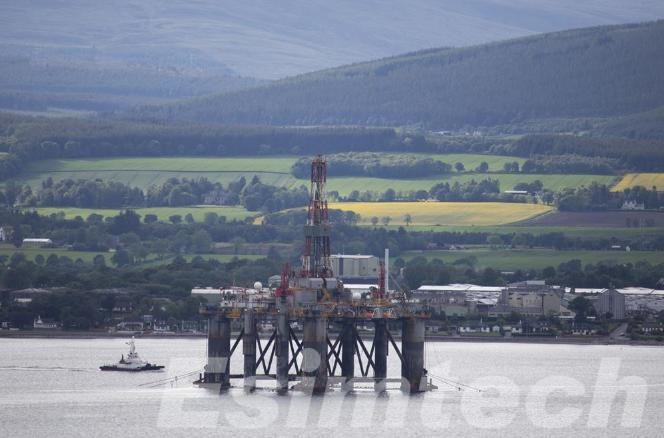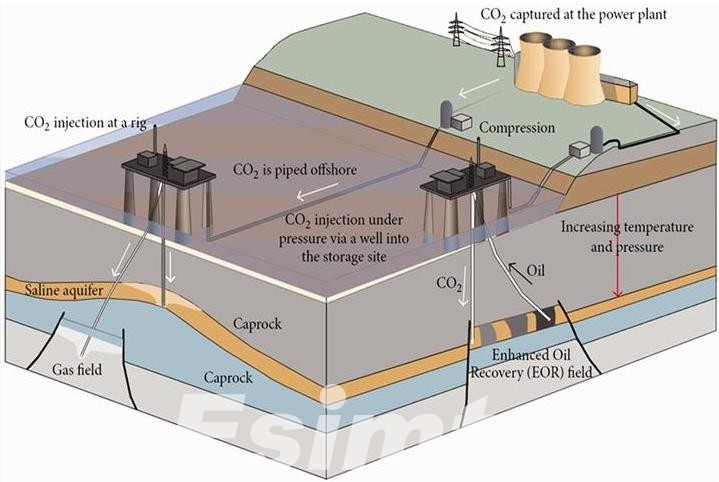Can Oil and Gas Extraction Coexist with a Sustainable Future
The world runs on energy, and for over a century, oil and gas have been the dominant players. But as we face the pressing challenge of climate change, a crucial question arises: Can oil and gas extraction coexist with a sustainable future?
The Role of Oil and Gas Extraction in Today’s World

Fossil fuels hold an undeniable position as the world’s primary energy source. They are the lifeblood of many industries, powering everything from our cars and airplanes to the factories that manufacture the goods we rely on daily.
- Energy Security: Oil and gas provide a reliable and relatively consistent form of energy. Unlike renewable sources like solar and wind, which can be dependent on weather conditions, oil and gas can be stored and accessed readily whenever needed. This stability is crucial for ensuring energy security, especially for countries with limited access to renewable resources.
- Economic Engine: The oil and gas industry is a significant economic driver. It creates millions of jobs globally, from exploration and extraction to refining, transportation, and petrochemical production. The revenue generated by oil and gas sales contributes heavily to government budgets, funding essential services like infrastructure development, education, and healthcare.
- Globalized Commodity: Oil and gas are traded on a global market, impacting economies worldwide. The price of oil, for instance, influences the cost of transportation, heating, and a wide range of manufactured goods. This interconnectedness highlights the complex economic web that oil and gas are woven into.
- Feedstock for Industries: Beyond their role as fuel sources, oil and gas are also essential feedstocks for a vast array of industries. They are used to create plastics, fertilizers, pharmaceuticals, and countless other products that underpin modern society.
However, it’s important to acknowledge that this dominance comes with a significant environmental cost. As we move forward, addressing this challenge is crucial for ensuring a sustainable future.
The Challenges of Oil and Gas Extraction

The extraction and burning of fossil fuels present a complex challenge for a sustainable future. Here’s a deeper dive into the key issues:
- Greenhouse Gas Emissions: The burning of oil and gas releases significant amounts of carbon dioxide and methane, both potent greenhouse gases that trap heat in the atmosphere. This contributes to global warming, leading to rising sea levels, extreme weather events, and disruptions to ecosystems.
- Environmental Damage: Oil and gas extraction can have devastating consequences for the environment. Oil spills can destroy marine life and contaminate coastlines for decades. Fracking, a technique used to extract oil and gas from shale rock, has been linked to water contamination by fracking fluids and methane leaks. These leaks not only pollute the air but also contribute to climate change.
- Habitat Loss and Wildlife Disruption: Oil and gas exploration and development often take place in sensitive ecosystems, such as the Arctic tundra or coral reefs. This can lead to habitat loss for wildlife, disrupt migration patterns, and endanger endangered species.
- Public Health Impacts: Air pollution from oil and gas operations can have a negative impact on public health, leading to respiratory problems, heart disease, and even cancer.
These challenges pose a significant threat to our planet and our health. The good news is that there’s growing awareness of these issues, driving innovation and change within the industry.

Latest Advancements in Oil and Gas Extraction
The oil and gas industry recognizes the urgent need to reduce its environmental impact. While transitioning entirely to renewable energy sources remains the long-term goal, advancements are being made to extract oil and gas with greater efficiency and sustainability. Here’s a deeper dive into some of the most promising technologies:
- Carbon Capture and Storage (CCS): This technology captures carbon dioxide emissions from power plants and oil and gas facilities. The captured CO2 is then compressed, transported, and injected deep underground into geological formations where it is permanently stored. While CCS is still in its early stages of commercial deployment, it holds significant promise for mitigating greenhouse gas emissions from the industry.
- Methane Mitigation: Methane, the main component of natural gas, is a potent greenhouse gas with a warming effect 25 times greater than CO2 over a 100-year period. Leaks during extraction, transportation, and storage contribute significantly to methane emissions. Advancements in leak detection technologies, like high-resolution aerial surveys and advanced sensor equipment, are helping companies identify and fix leaks more quickly. Additionally, replacing outdated infrastructure with lower-emission pipelines is crucial for reducing methane escape.
- Enhanced Oil Recovery (EOR): As existing oil fields mature, extracting the remaining oil becomes more challenging. EOR techniques use various methods, such as waterflooding, gas injection, and thermal recovery, to increase the amount of recoverable oil. New developments in EOR, like using “smart” water that is chemically tailored to specific rock formations, can improve efficiency and reduce the environmental footprint of extraction.

- Digitalization and Automation: The rise of digital technologies like artificial intelligence (AI) and machine learning is transforming the oil and gas industry. By analyzing vast amounts of data from sensors and wellbores, AI can optimize drilling operations, predict equipment failures, and improve reservoir management. Automation in areas like well completions and downhole operations can also lead to greater efficiency and reduce worker exposure to hazardous environments.
- Renewable-powered Operations: A significant portion of the environmental impact from oil and gas comes not from extraction itself, but from the energy used to power operations. Companies are increasingly looking to renewable energy sources like solar and wind to power their facilities. This reduces reliance on fossil fuels and lowers the overall carbon footprint of oil and gas production.
These advancements represent a significant shift in the oil and gas industry. While challenges remain, the ongoing focus on innovation and sustainability offers hope for a future where oil and gas can play a less harmful role in the global energy mix.
Can Oil and Gas Become More Sustainable
Can oil and gas become more sustainable? the answer is yes. We are making efforts in every aspects.
The sustainability of the oil and gas industry hinges on reducing its environmental impact while maintaining economic viability. Transitioning to more sustainable practices involves adopting cleaner technologies, improving energy efficiency, and integrating renewable energy sources. Natural gas, which burns cleaner than oil or coal, can serve as a bridge fuel towards a lower-carbon future.
Technological advancements such as carbon capture and storage (CCS) play a significant role in mitigating the environmental impact by capturing CO2 emissions from industrial processes and storing them underground. Enhanced oil recovery (EOR) methods also contribute by increasing the amount of extractable oil from existing fields, reducing the need to explore new sites. The industry is exploring green hydrogen, produced using renewable energy, as a future energy carrier.
Companies are increasingly being held accountable for their environmental performance, encouraging the adoption of best practices and transparency in operations. The push towards a circular economy, where waste is minimized and resources are reused, presents further opportunities for innovation and environmental stewardship in the oil and gas sector.
Conclusion
Through innovation, stricter regulations, and a strong focus on renewables, the oil and gas industry can evolve to play a less harmful role. The path forward requires a global commitment to reducing our dependence on fossil fuels while ensuring a smooth transition to a clean energy future.
